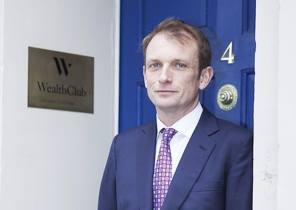

Investment manager Downing is seeking to raise £15m for its Downing One venture capital trust.
Downing has about £210m of assets in its existing range of VCTs, of which approximately £105m is managed in Downing One.
The latest £15m fundraising mission is partly to support the growth of the trust’s existing portfolio companies as well as to take advantage of a “strong pipeline” of new investment opportunities.
VCTs are like investment trusts but only invest in small, young and usually unlisted companies.
Although such companies are riskier and statistically more likely to go bust, investing in a VCT comes with a 30 per cent income tax relief from the government and any returns achieved are tax free.
The trusts have performed well in recent years and research from investment platform Wealth Club shows the top 16 VCTs have all at least doubled investors’ money on a net asset value return basis over the last 10 years.
VCTs have also become increasingly mainstream with 2018 having had the second biggest VCT season on record as £731m was raised, according to Wealth Club.
Downing One invests in a range of unquoted and quoted companies across a number of sectors — including healthcare and life sciences, leisure, software and alternative energy — and its split between income and growth investments is around 50:50.
The trust’s target annual dividend is 4 per cent (equivalent to a 5.7 per cent tax-free yield on the current price) and investors also have the option to reinvest dividends in new shares.
The maximum individual subscription per tax year is £200,000 while the minimum investment is £5,000 as a lump sum.
Kostas Manolis, partner and head of unquoted investments at Downing, said: “VCTs remain hugely popular with experienced investors and are proving particularly attractive to wealthy investors who have large income tax liabilities or who want to generate tax-efficient income.
“Downing One stands out because it has an existing portfolio which includes mature, profitable businesses which can provide returns for investors while our earlier stage, fast growing companies, scale up.”
Mr Manolis said he believed VCTs would continue to play an important role in the long-term investment landscape “whatever the outcome of Brexit” and would provide essential small business funding while making a contribution to the wider UK economy.
Jason Hollands, managing director of communications at Tilney, agreed, adding that interest in VCTs had been supported by the “crack down” on more aggressive, loop-hole driven forms of tax planning and reduced opportunities to mitigate income tax through investments in pensions.
Mr Hollands added the risk profile of VCTs had also increased due to changes to VCT rules which refocused new investment on younger and riskier companies.
He said: “However, as an established VCT with a mature portfolio of existing investments Downing One offers investors a diversified and less risky approach.
“The Downing One portfolio is quite hybrid in nature, with around half in relatively defensive asset backed companies or businesses with predictable revenue streams which provide income, and the other in growth companies.”
imogen.tew@ft.com
What do you think about the issues raised by this story? Email us on fa.letters@ft.com to let us know.



